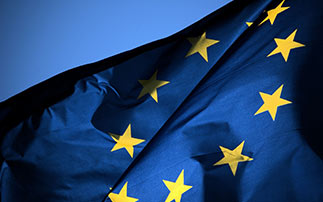On 3 September, the EU Council adopted its official position on the 2020 budget. The year 2020 is decisive insofar as it closes the 2014-2020 budget programming period and marks the completion of the Europe 2020 strategy. What is the current situation regarding the achievement of the objectives set?
I- Measured progress of the Europe 2020 strategy
The 2020 budget must allow for the financing and effective implementation of EU policies, which aim to promote “smart, sustainable and inclusive growth” in line with the Europe 2020 strategy. In the context of the 2014-2020 programming period, major progress has been made in the environmental and educational fields, but more needs to be done to achieve the objectives set, particularly in terms of investment in research and development (only 2.06% of the EU’s GDP being devoted to it compared to 3% planned), employment (73.2% of the population between 20 and 64 years of age working against 75% desired) and social inclusion. This calls for an intensification of the European Union’s efforts through an increase in expenditure that would accelerate the implementation of EU programmes and policies. The 2020 budget aims to meet this imperative and logically focuses on the above-mentioned themes to enable the EU to fulfil its commitments. It thus provides strategic guidance to project leaders, enabling them to anticipate the orientations of future calls for proposals.
II- New funding prospects expected in 2020
The 2020 EU budget focuses on boosting competitiveness, growth and employment, with €24 billion, an increase of 2.72% compared to 2019. Some funding programmes are thus endowed with an increased budget, such as H2020, the Framework Programme for Research and Innovation (+3.7%), the European satellite navigation systems EGNOS and Galileo (+75%) or the industrial development policy in the field of defence (+4.08%). Similarly, funding opportunities are currently open for the development of trans-European networks (in particular for the energy component of the Connecting Europe Facility) and policies to support SMEs (COSME). The strengthening of the European economy also implies an increase in resources devoted to education and training, hence the higher budget allocated to Erasmus + (+2.5%), and particular attention will also be paid to environmental projects, with a rise in the funds dedicated to the LIFE programme (+3.9%).
Through the many funding opportunities still available in 2020, the EU wishes to provide itself with the means to achieve its ambitions. Will however the 2020 budget be enough to keep its promises?
Audrey PEAN




